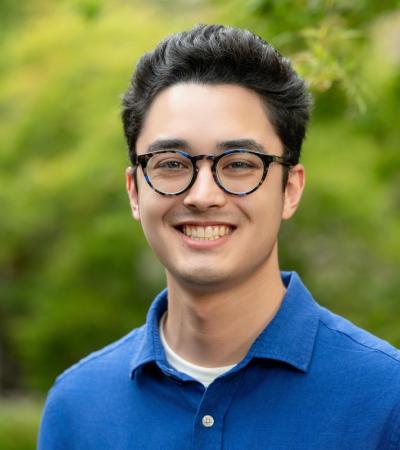Suffering and Personhood: The Politicization of Palliative Care in Morocco
Experiencing the World Fellowship
Adviser: Rachel Sweet
Final Report:
The Institut National d’Oncologie, in Rabat, is a tranquil place. Groundskeepers maintain the hospital’s verdant courtyard while patients and visitors enjoy the warm weather or wait inside for their care. I had just met with a palliative care doctor, one of only a few in the country, who had described to me some of the most pressing issues of a rapidly growing country. He noted that Casablanca maintains the most effective model of care in the country, having a fully-funded, well-supported accompaniment model with mobile teams that perform home visits as well as on-site care. Though the national institute was well-funded, the doctor assured me that scaling up remains a challenge, with beds constantly full in Rabat and stagnated expansion clinics in Fez and Marrakech. Even so, the palliative care units, ensconced in the oncology wards in Casablanca and Rabat, remained oases of care in a country with growing needs.
“La douleur est universelle et fait partie de notre quotidien,” or “pain is universal and part of life,” notes a Moroccan palliative care training module. The role of palliative care is to respond to this suffering, to make life more livable for those whom medical care remains unavailable for. It is a form of care that occupies a complicated position in Morocco, marked by limited access and complications in opioid prescription. Rates of cancer and chronic disease are rising with a growing, aging population. Palliative care, so far, has been unable to meet the need, to care for these literal growing pains; in 2016 Human Rights Watch released a report, noting the severity of this crisis.
For those on the peripheries, access to this form of specialized care (or sometimes, any care) remains out of reach. I spent the summer learning how such forms of care remain difficult to access and how vulnerable groups in society remain marginalized by current models of care. It was something I noticed on my way into the National Institute. A small crowd had formed outside the site’s blue gates, some talking to the security guard at the entryway. After a quick exchange, I was quickly able to get to my meeting. But by the time I left, the crowd was still there, still waiting. Others can’t even make it to those gates. In my conversations with NGO staff and officials, I learned that there remains great fear for many migrants, especially undocumented migrants, who wouldn’t even risk traveling to a hospital for fear of being stopped by the authorities.
I worked with Professor Courtney Hughes-Rinker, a medical anthropologist at George Mason University, who specializes in studying palliative and other forms of medical care in Morocco. Building on her previous research, I was able to conduct exploratory research on the challenges refugees and migrants face in receiving access to palliative and general forms of healthcare. These are populations that remain on the peripheries, relying largely on aid from local and international NGOs. In this capacity, I was able to volunteer with a small local NGO, the Collectif des Communautés Subsahariennes au Maroc. Working with them, I learned how groups stretch limited resources to provide aid, including housing, legal, and, when possible, medical assistance. In conversations with both staff and migrants, I heard how inaccessible many services are, developing lines of inquiry and networks for potential future research.
My time in Morocco was not without challenge — almost immediately, I learned that my advisor was unable to travel to the country, leaving me on my own in a new country. Fortunately, we were able to coordinate a plan, with my advisor connecting me to various contacts in the field to better grasp the work I was doing. I learned how to work independently, connecting with interlocutors around Rabat and deepening my understanding of my research interests while also building new skills. It was how I connected to the Collectif and how I learned about a new country with its own unique social, cultural, and political dynamics.
Morocco is a country at a complicated crossroads. It is finding its way in a world dominated by the West, modernizing while working to uphold its own distinct Arabic and Amazigh culture. The country is caught between shifting modernities, geographies, timelines, cultures. These abstract tensions are made more tangible in exploring the tensions of palliative care and of healthcare at the margins. It is in part the inaccessibility of medical care that means migrants remain at the peripheries in the country, and it is how difference is sometimes more tangible, more real. Political, social, and operational dynamics further complicate the situation, even for those who do have access to the healthcare system. For example, the opioid analgesic Tramadol, the most freely available in the country, could catalyze a wave of opioid addictions in the near future. These issues have no easy answers, and these narratives remain unfinished. I am leaving Morocco having learned how to better shape a research project, how to interact with a new place and culture, and how to live in a new place. I am also left with more ideas and more questions. My time conducting exploratory research was incredibly valuable — I learned new skills; met wonderfully helpful doctors, academics, and other professionals; and developed new questions — but the suffering remains. As with any country or health system, vulnerable populations remain, there are always those living in the wake of inadequate systems marred by inequality. I’ve left Morocco with a better understanding of how that vulnerability exists and with a renewed commitment to go to those at the margins.






